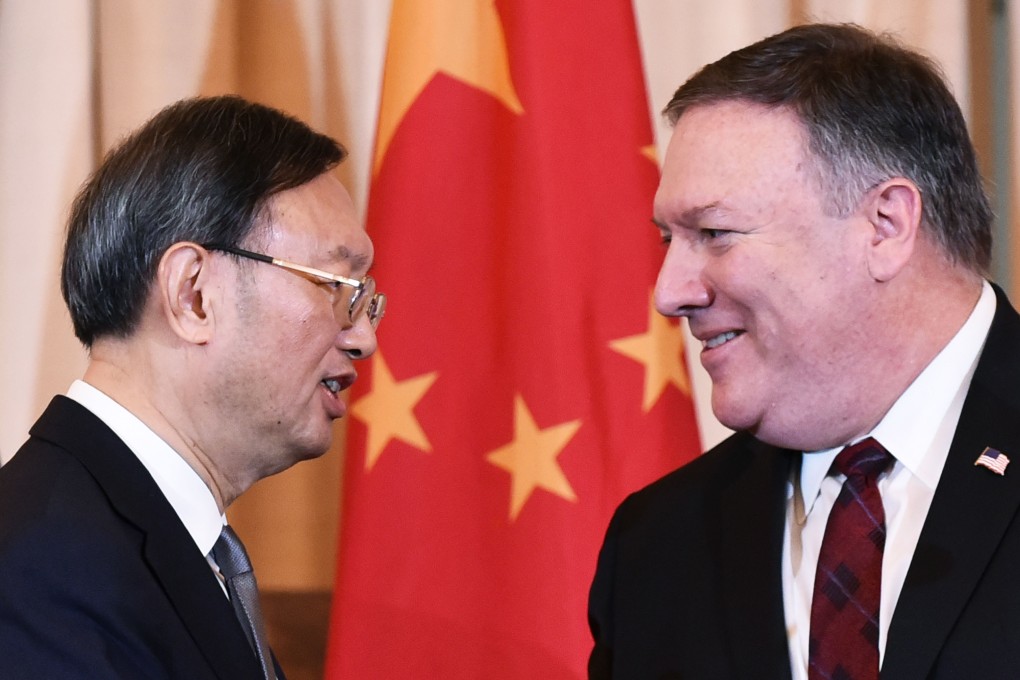US-China talks: Mike Pompeo’s seven-hour meeting with Yang Jiechi ‘helps atmosphere’ – but statements reveal divisions
- The countries’ top diplomats indicate a wish to prevent a further deterioration in relations
- But the two sides give differing accounts of the meeting and US efforts may be driven by this year’s election, some observers say

No consensus was reached in talks between China’s top diplomat Yang Jiechi and US Secretary of State Mike Pompeo on Wednesday, but the two had dinner and spoke for seven hours in what observers said showed a willingness to maintain dialogue and keep their relations at least at the current level.
Beijing claimed the meeting had been “constructive” and said Yang had laid out China’s position on Hong Kong, Taiwan and Xinjiang, reiterating that the US should stop interfering in its internal affairs, according to a statement by the Chinese foreign ministry.
Those sensitive issues were not mentioned in a brief statement by the US state department. Instead, it said Pompeo had stressed “the need for fully reciprocal dealings between the two nations across commercial, security and diplomatic interactions”, and highlighted “the need for full transparency and information sharing to combat the ongoing Covid-19 pandemic and prevent future outbreaks”.

11:17
WTO nominee vows to bring US and China to negotiating table
Taoran Notes, a social media account affiliated with the official Economic Daily newspaper that is used by Beijing to deliver its messages about China-US trade expectations, said cooperation was “the only correct choice” for the world’s largest two economies.